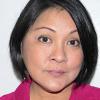The head of the Catholic Bishops' Conference of Korea said North Korea's recent threats of aggression may be an attempt to shore up foreign aid while preserving pride.
"It is our presumption that they wish to draw out some financial assistance from abroad without conceding their pride or self-esteem," Bishop Peter Kang U-Il of Cheju, South Korea, wrote in an email Tuesday to Catholic News Service.
He said Catholic bishops "feel very sorry" that tension provoked by North Korean threats are making "the whole world very uncomfortable and anxious."
Though South Koreans "appear to be calm and tranquil," they may feel uneasy about the present escalating atmosphere between two Koreas, Kang said. South Koreans might have been very used to the threats, but "one could not deny the possibility of unexpected military clash."
The bishop personally appealed to people of Korea to pray for the peace in the peninsula. He offered a prayer he composed appealing for mercy for a "silly flock" whose actions are causing hunger, suffering and drawing people to violence and death.
Under supreme leader Kim Jong Un, North Korea announced it launched a rocket in December and conducted its third underground nuclear test in February. In March, the U.N. Security Council condemned the nuclear test and imposed tougher sanctions on North Korea, including financial restrictions, cargo inspections and a ban on exports.
North Korea announced March 30 that Kim had declared a "do-or-die" battle against invasion after a U.S. stealth bombers drill. In a television announcement Tuesday, government advised foreign institutions and enterprises, including tourists, to take measures to prepare for evacuation and their safety in case of war.
Kang said North Korea might be threatening war because it cannot revitalize its economy and rise up from its "destitute situation" without foreign investments, but needs to maintain its "self-respect or self-reverence," which the bishop traces to the ideology declared by Kim's dynasty. The ideology and philosophy of superiority of Korean history and culture advocated by the North Korean ruler and his predecessors have prevailed through the 60 years following the Korean War, he said.
However, this philosophy of isolation and autonomous economy has only "completely demolished their economy," leaving the North to suffer the same fate as other socialist countries whose economies collapsed, Kang said.
"I think we need much patience in dealing with the people of (North Korea) who have been isolated for (a) long time from modern world," he added.
He also called for "much compassion" while the North showed "very one-sided obstinacy" in foreign relations. "They have never experienced modern democratic order in their near history," the bishop explained.
He said he sees "the violent way of presenting their requests to the world" as evidence of the desperate situation that they could not survive.




